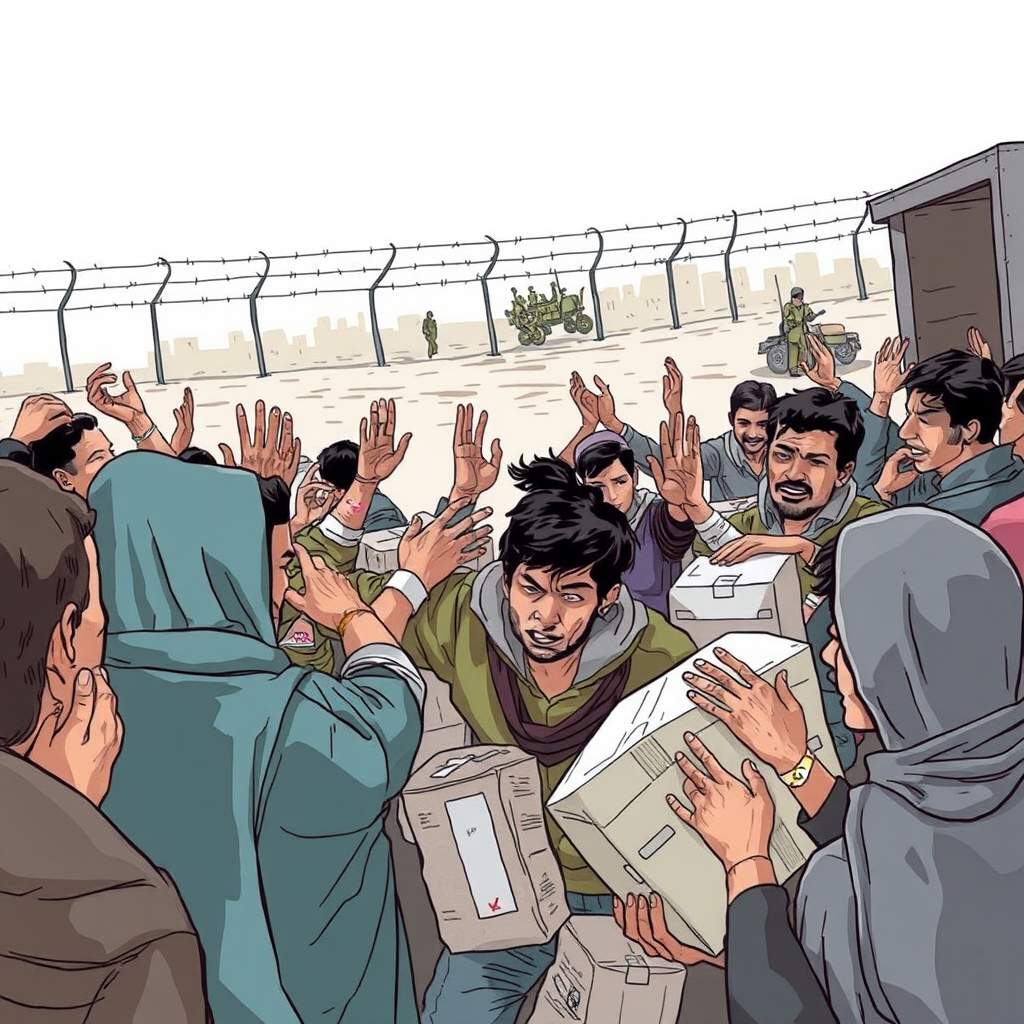Dozens Killed Near Gaza Aid Distribution Hub

At least 27 Palestinians were killed Tuesday by Israeli fire while attempting to collect aid near a distribution hub in Rafah, Gaza, according to the territory’s health ministry and eyewitness accounts. This marks the third incident in three days resulting in Palestinian deaths around the same aid hub, operated by the Gaza Humanitarian Fund (GHF), a recently established organization backed by Israel and the United States, intended to replace established U.N. aid operations.
The Israel Defense Forces (IDF) acknowledged reports of casualties, stating they are investigating. According to an IDF statement posted on X, troops identified individuals deviating from designated routes and initially fired warning shots. When those shots were not heeded, they directed fire near individual suspects.
The GHF’s implementation has drawn sharp criticism from the U.N. and other aid organizations, who argue it fails to address the escalating hunger crisis in Gaza and effectively weaponizes aid distribution. U.N. human rights chief Volker Türk condemned the situation, stating Palestinians are being forced to choose between starvation and risking death while attempting to access limited food supplies provided through Israel’s militarized system. He called for a “prompt and impartial investigation,” asserting that attacks against civilians constitute a war crime and a grave breach of international law.
Israel maintains the new system is necessary to prevent Hamas from diverting aid, but has offered no concrete evidence to support this claim. Notably, Jake Wood, the head of GHF, resigned on May 25, citing the organization’s inability to operate in accordance with humanitarian principles, despite operations commencing the following day.
Prior to Tuesday’s events, at least one Palestinian was killed and 48 wounded on May 27 during a scramble for aid at the Rafah hub. On Sunday, June 1, at least 31 Palestinians were killed and nearly 170 injured near the same distribution site. The International Committee of the Red Cross (ICRC) reported its field hospital in Rafah received a “mass casualty influx,” with the majority of patients suffering from shrapnel and gunshot wounds. ICRC spokesperson Hisham Mhanna emphasized the need for safe and dignified aid delivery.
The IDF issued a statement on June 1 denying it fired on civilians near the aid site, a claim disputed by numerous reports. On Monday, June 2, at least three more Palestinians were killed by Israeli fire near another GHF hub in Rafah, with the IDF stating warning shots were fired at individuals approaching troops.
The implementation of the GHF system follows a two-month blockade by Israel, which severely restricted the flow of essential food and medical supplies, exacerbating the humanitarian crisis in Gaza. Food security experts have repeatedly warned of an imminent risk of famine. The new aid distribution model was announced on May 18 by Prime Minister Benjamin Netanyahu’s office, promising a “basic” level of food access to Gaza, hours after the launch of a major ground offensive.
This escalating cycle of violence surrounding aid delivery is deeply troubling. While Israel has a right to security, the current approach appears to prioritize control over the preservation of human life. The reliance on a new, untested aid distribution system, coupled with the ongoing blockade and the use of live fire near desperate civilians, is a recipe for disaster. A fundamental shift in strategy is urgently needed, one that prioritizes the safe and unimpeded delivery of humanitarian assistance to the people of Gaza. The international community must demand accountability and push for a solution that respects the dignity and rights of all involved.